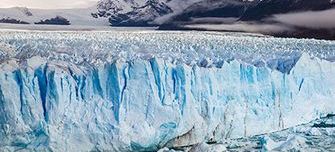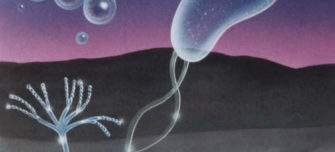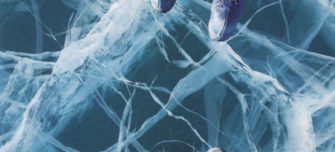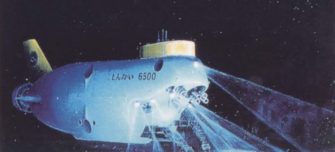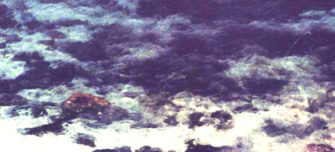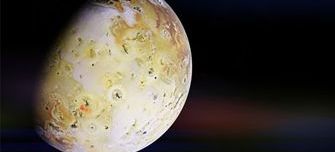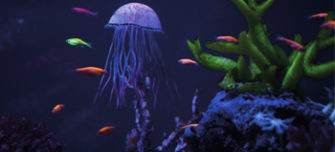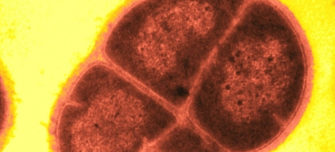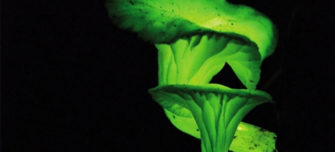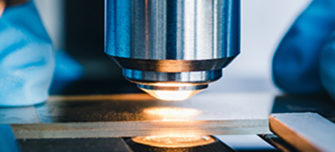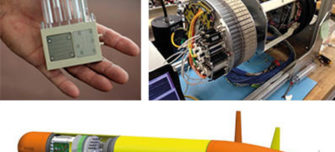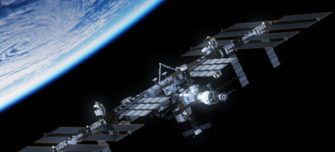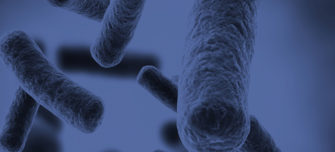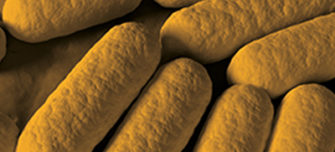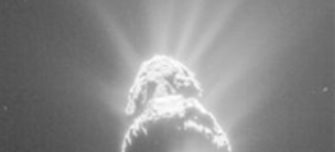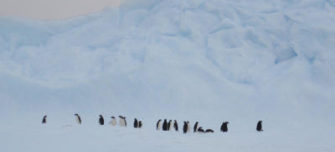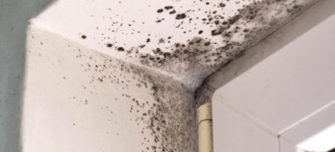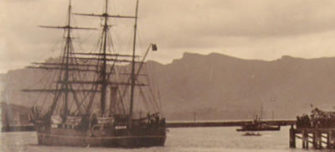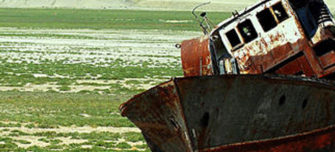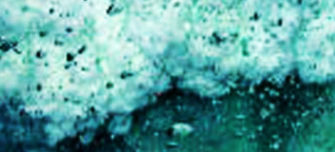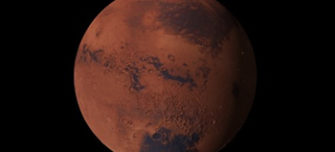Resources and further reading
-
Microbiology Today: Life on a changing planet
Through each of our featured articles, the authors explore the chronic changes that have been inflicted on Earth's climate and how the microbial world has adapted, been impacted and how microbes could potentially offer solutions.
-
Microbiology Today: Oceans
This issue of Microbiology Today explores microbes found throughout the world’s oceans. The five featured articles focus on a variety of micro-organisms, examining their wide-ranging roles within the marine environment and the impact they can have both in the sea and on dry land.
-
Microbiology Today: Microbiology – the twilight zones
In this issue of Microbiology Today, we explore the nature of TSEs; viroids – the smallest living fossils?; viruses rule the waves; astrobiology; transposable elements; nanobacteria; and unculturables and bacterial diversity.
-
Microbiology Today: Bugs get everywhere
In this issue of Microbiology Today, we explore space bugs; life on Mars; Antarctica: the last frontier; lichens in the freezer; and how microbes travel the world.
-
Microbiology Today: Microbiology's Final Frontier
In this issue of Microbiology Today, we explore microbiology in extreme environments, including Antarctica and the depths of the ocean.
-
Microbiology Today: Marine microbiology
Learn more about marine microlights, the importance of marine snow, red tides in the sunset and the topics of marine biotechnology.
-
Why should we study astrobiology?
Astrobiology is the study of life throughout our universe, but why is it worth studying? In the second instalment of the two-part Space and Microbiology video series, Dr André Antunes takes us through the importance of studying astrobiology.
-
What are extremophiles?
In this blog, we explore some of Earth’s extremes, the microbes that make them their home and the advancements in science that have happened thanks to these incredible micro-organisms.
-
Searching for antibiotics in the abyss
At the University of Bristol, Dr Paul Race and colleagues are combining the innovations of synthetic biology with robotic environmental sampling to attempt to unblock the antibiotic discovery pipeline. Find out more about their research in this article in Microbiology Today.
-
Heroic exertion of radiation-resistant extremophiles
This article published in Microbiology Today provides an overview of ‘super’ radiation-resistant extremophiles and their potential uses in biotechnology and medicine.
-
Circadian rhythm in fungal bioluminescence: nature's bright idea
Found in temperate and tropical locations worldwide are almost 80 species of bioluminescent mushrooms. In this article, featured in Microbiology Today, we discover more about the process of bioluminescence, how and why fungi produce light, and how this is beneficial.
-
The immortal, halophilic superhero: Halobacterium salinarum – a long-lived poly-extremophile
In this issue of Microbiology Today, Professor Terry McGenity highlights how three properties of extreme halophily (salt-loving), radiation resistance and longevity are interconnected.
-
Life at the extremes
Microbes can colonise and transform environments that are considered harsh for humans. This was demonstrated by a team from the University of Manchester’s geomicrobiology group at Bluedot festival in their stall ‘Life at the Extremes’. In this blog, Dr Naji Bassil tells us more.
-
Ocean robots uncover microbial secrets
In this Microbiology Today article, we explore oceanic sampling techniques and how using ocean robots can yield more discoveries and give microbial oceanographers new eyes to observe change in this complex environment.
-
Bacterial hitchhikers on the International Space Station
Bacteria have been found in the International Space Station’s drinking water. A research article published in the journal Microbiology discussed the bacteria found coating drinking water pipes and tanks on the International Space Station (ISS).
-
The unexpected influence of microbiology on the disposal of radioactive waste
In this Microbiology Today article, we explore how a surprising amount of work has been carried out around the world on how micro-organisms might be beneficial or harmful for the safe containment of such waste.
-
Microbiology Editor's Choice: understanding a mycobacterial thermophile
This paper reveals the survival of a model NTM at near-pasteurization temperatures and the stability of one enzyme likely involved in its resistance to thermal stress.
-
New microbes discovered in a baby marmoset, Tibetan Plateau pika and northern bald ibis
In this blog, we share details from a group of scientists that discovered a new species from the genus Inhella. The scientists isolated the species from a freshwater pond at a crocodile farm in Chaozhou Township, Taiwan. The species was named Inhella crocodyli.
-
New microbes discovered in feathers, a sea snail and wine must
Learn more about newly discovered species of bacteria, fungi and protists. In this blog we discuss some of the new species that have been discovered and the places they've been found.
-
From space to stomach ulcers
Learn more about the study of stable isotopes, which are different forms of an atom that have varying numbers of neutrons and protons in their nuclei.
-
Is Antarctic wildlife at risk from human E. coli?
Antarctica is the only continent on Earth without a native human population. But at any one time, there are still thousands of people living there, most of them scientists. During the course of their research, it’s inevitable that these scientists will produce human waste. So where does all this sewage go?
-
Microbe Talk: Microbial genomics amidst the Arctic crisis
In this podcast, we speak to Dr Arwyn Edwards; an Arctic microbiologist based at Aberystwyth University about his published paper in Microbial Genomics entitled ‘Microbial genomics amidst the Arctic crisis’.
-
Microbe Talk: Managing mildew
In this episode of Microbe Talk, we spoke to Haoxiang Wu, PhD student at Hong Kong Baptist University. In some tropical climates, mould growth is managed by near-constant use of dehumidifiers or air conditioners, which has a great environmental impact. Haoxiang’s research involves using fluid dynamics to control indoor mould growth in a sustainable way.
-
Microbe Talk: Antarctic microbes from Scott’s Discovery Expedition
In 1901, Captain Robert Falcon Scott led a team of men on the Discovery Expedition to explore the mysteries of Antarctica. In this podcast, we speak to Dr Anne Jungblut, a microbiologist studying cyanobacteria at the Natural History Museum to learn more about the mysterious life forms Scott's team brought back over 100 years ago.
-
Microbe Talk: The Microbial Apocalypse
Imagine waking up tomorrow morning to find out that every bacterium and every archeon on the planet had suddenly vanished. What would happen? In this Microbe Talk podcast we talk to Dr Jack Gilbert and Dr Josh Neufeld about 'The Microbial Apocalypse.'
-
Microbe Talk: Microbes in the deep dark ocean
In this podcast we spoke to deep sea microbiologist Julie Huber at the Marine Biological Laboratory discusses how her group is trying to uncover more about microbes living in the deepest darkest depths of the ocean.
-
Microbe Talk: Microbes on Mars and Antarctic soil fungi
In this podcast we interviewed Dr Lewis Dartnell, an astrobiologist from the University of Leicester, about how microbes might be able to survive in an extremely salty Martian environment.
Image credits:
NASA/Science Photo Library
Carlin Iverson/ Science Photo Library
George Steinmetz / Science Photo Library
Promotional Office, IAMSTEC
Ian Atherton
iStock/dottedhippo
Silk-stocking /iStock
Custom Medical Stock Photo/Science Photo Library
Cassius V. Stevani
Mike Dyall-Smith
Kkolosov/iStock
Jim Birch, MBARI
3DSculptor/iStock
vlastas/iStock
Thinkstock
iStock/Anton_Petrus
gorancakmazovic/iStock
European Space Agency on Flickr under CC BY-SA 2.0
Michelle Power
Fevziie Ryman/iStock
Archives New Zealand
Captain_Nimmo/Thinkstock
NOAA Submarine Ring of Fire 2006
Kevin Gill on Flickr under CC BY-SA 2.0

